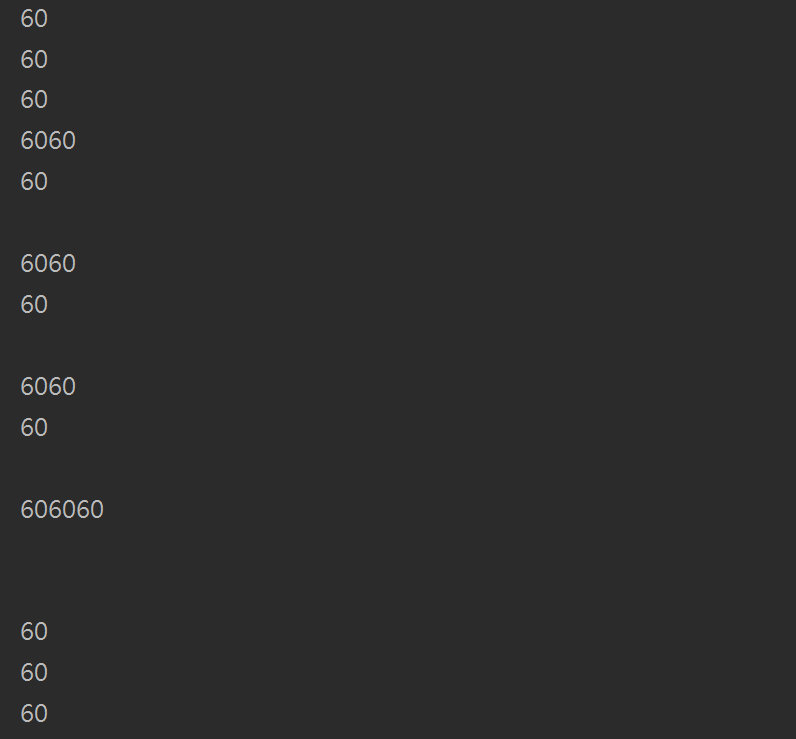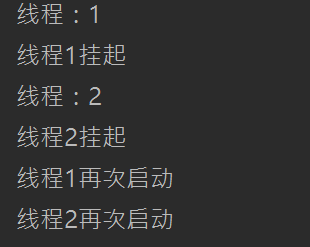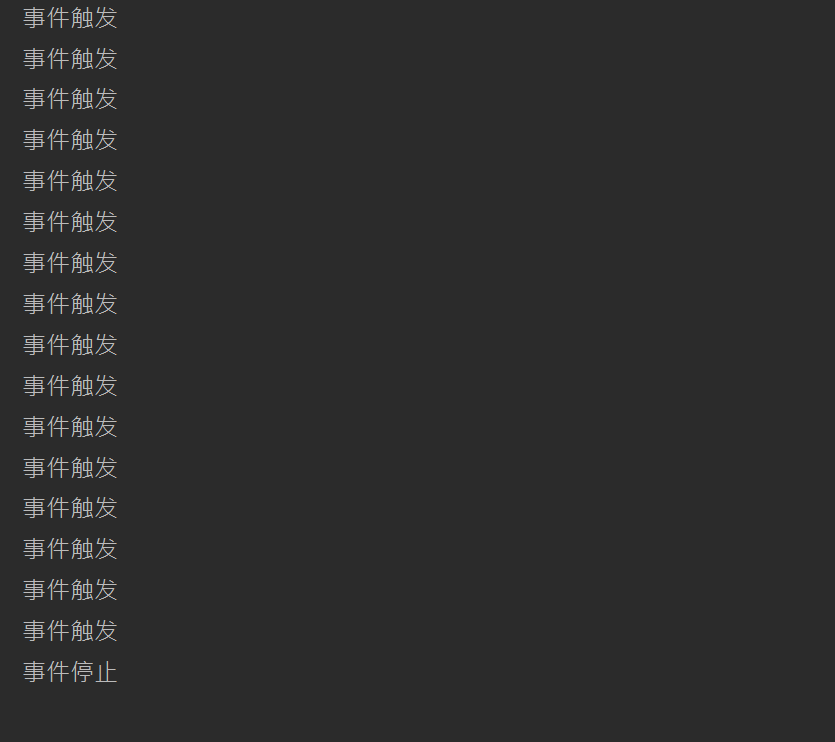Semaphores, in other words, control the number of concurrent threads, which is the number of concurrent threads in turn
See the example:
import threading # Import module
import time # Import module
class Exam(threading.Thread): # Create class
def __init__(self, num): # initialization
super(Exam, self).__init__() # Parent class initialization
self.num = num # initialize variable
def run(self): # Override parent method
semaphore.acquire() # Semaphore acquisition
print(self.num) # Print
time.sleep(2) # Delay 2 seconds
semaphore.release() # Release semaphore
if __name__ == "__main__": # Main function
semaphore = threading.Semaphore(3) # Create an instance and set the semaphore to 3
for i in range(50): # 50 cycles
exam = Exam(60) # Create instance
exam.start() # Open thread
Output results:

We found that after setting the semaphore, it is a group of every three, that is, after three threads, and then the next three
Condition variable:
Condition variables are usually associated with a Lock. When you need to share a Lock among multiple contidions, you can pass a Lock/RLock instance to the constructor, otherwise it will generate an RLock instance itself. It can be understood that in addition to the Lock pool with Lock, condition also includes a wait pool. The threads in the pool are in the wait blocking state in the state diagram until another thread calls notify() to notify subsequent threads. After receiving the notification, the thread enters the Lock pool to wait for locking, That is, the running of one thread can accommodate another thread to run halfway from the first run
import threading # Import module
import time # Import module
class Test(threading.Thread): # Create class
def __init__(self, num): # initialization
super(Test, self).__init__() # Parent class initialization
self.num = num # initialize variable
def run(self): # Override parent method
con.acquire() # Acquire lock
print("Thread:" + self.num) # Print
con.notify() # Notify subsequent threads
print("thread " + self.num + "Hang") # Print
con.wait() # The thread hangs until it times out or receives a notify notification
time.sleep(2) # Delay 2 seconds
print("thread " + self.num + "Restart") # Print
con.notify() # Notify subsequent threads
con.release() # Release lock
class Test2(threading.Thread):
def __init__(self, num2):
super(Test2, self).__init__()
self.num2 = num2
def run(self):
con.acquire() # Acquire lock
print("Thread:" + self.num2) # Print
con.notify() # Notify subsequent threads
print("thread " + self.num2 + "Hang") # Print
con.wait() # The thread hangs until it times out or receives a notify notification
time.sleep(2) # Delay 2 seconds
print("thread " + self.num2 + "Restart") # Print
con.notify() # Notify subsequent threads
con.release() # Release lock
if __name__ == "__main__": # Main function
con = threading.Condition() # Create a conditional variable instance
t1 = Test(str(1)) # Create instance
t1.start() # Open thread
t2 = Test2(str(2)) # Create instance
t2.start() # Open thread
Output results

It can be seen that after thread 1 is started, thread 2 will be notified to start, then thread 1 will hang, then thread 2 will start, then thread 1 will be notified, then thread 2 will hang, then thread 1 will start again, and then thread 2 will be notified to start again. This is the operation principle of condition variables.
event:
import threading # Import module
import time # Import module
class Test(threading.Thread): # Create class
def __init__(self): # initialization
super(Test, self).__init__() # Parent class initialization
# self.num = num # initialize variable
def run(self): # Override parent method
while True: # Infinite loop
if event.is_set(): # Determine whether to set events
print("Event trigger") # Print
else: # negative
print("Event stop") # Print
event.wait() # Wait for the event to stop for 3 seconds
class Test2(threading.Thread): # Create class
def __init__(self, ): # initialization
super(Test2, self).__init__() # Parent class initialization
# self.num2 = num2
def run(self): # Rewrite classification method
while True: # Infinite loop
event.set() # Set event
time.sleep(1) # Delay 1 second
event.clear() # Clear event
time.sleep(3) # Delay 3 seconds
if __name__ == "__main__": # Main function
event = threading.Event() # Create time instance
t1 = Test() # Create instance
t1.start() # Open thread
t2 = Test2() # Create instance
t2.start() # Open thread
Output results:

In the interval, when the if judges that the setting event is detected, it will print "event trigger" and then delay for one second, but the program will also detect whether the event still exists. When the delay occurs, the event does exist, so it will print all the time. When the event is cleared (clear method), the program detects that the event is cleared, so it will print "event stop" and delay for 3 seconds, Ordered programs are infinite loops, so they continue to recreate events, cycle over and over, and continue the whole repeated process.